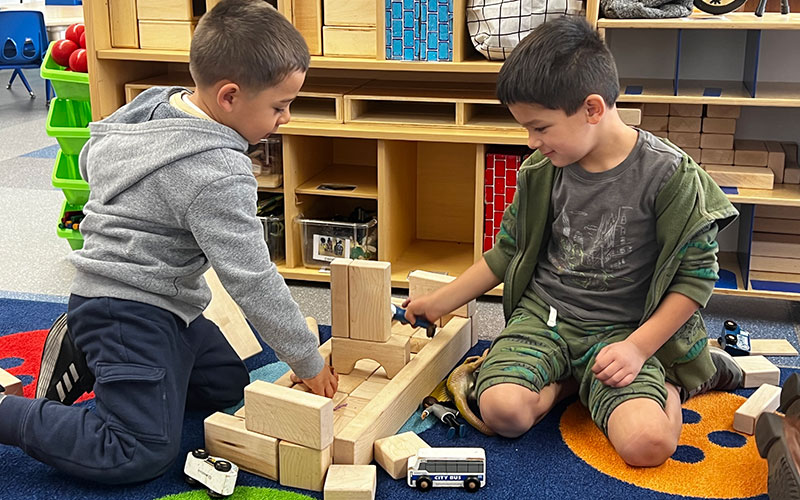Sometimes, the most effective way for students to learn is to experience something they naturally love doing: playing. Play-based learning is an engaging approach used during early education that encourages curiosity and creativity as children develop essential skills.
Play-based learning allows younger students to simultaneously obtain academic abilities while also advancing their social, emotional, and cognitive capacities. In this approach, play becomes a key factor in the learning process and encourages collaboration, communication, critical thinking, creative innovation, and confidence. Play is child-directed, while the teacher serves as a helper, taking an active role as an intentional planner, observer, and guide.

In Downey Unified, we know how important play is for students during their early childhood years, and we value play-based learning and the benefits it offers.
Enables social development — Throughout play-based learning, children are able to learn more about social norms while also interacting and building relationships with their peers. They acquire basic skills, including sharing, cooperation, taking turns, and resolving conflicts.
Improves cognitive abilities — As children explore and learn about the world around them, they can further their problem-solving and critical-thinking skills as well as their creativity while engaging in play. Things like Legos, puzzles, and blocks helps them understand more about colors, shapes, patterns, and how items fit together—skills that are remembered and can also be transferred to other areas of learning and reality.
Creates natural engagement — Play is a way for students not only to connect with others but also to disconnect from surrounding distractions. It helps children become solely focused on the activity in front of them and make meaningful connections between new and prior knowledge.
Improves motor skills — Because play is more active than many other classroom tasks, play-based learning helps students further develop their motor skills. Some effective activities include painting, drawing, building and stacking objects, throwing and catching a ball, jumping, climbing, and taking part in games such as hopscotch.
Is process-oriented — Rather than relying on structure and placing an emphasis on a final product, play-based learning encourages students to express their own creativity without the fear of failure or not doing something correctly.
Creates a positive attitude toward learning — The more a student enjoys the learning environment, the more likely he or she will want to discover and explore new concepts. By incorporating play into the classroom setting, schools are able to help foster the joy and desire that result from this educational strategy.
In Downey Unified, students in the early childhood setting benefit significantly from the play-based learning opportunities they have on a regular basis. For more information on how DUSD helps all students both in the classroom setting and beyond, to learn more about our early education programs like Leap and Transitional Kindergarten (TK) and to enroll your student, you can visit our website.
